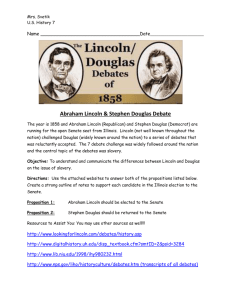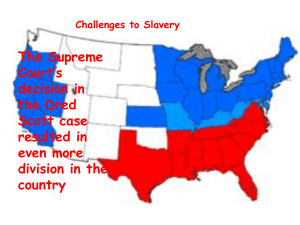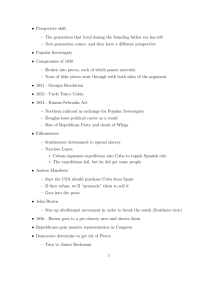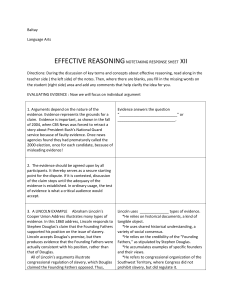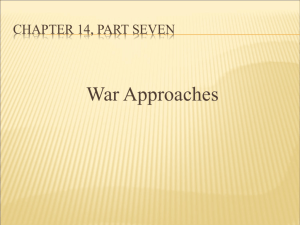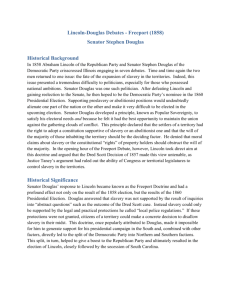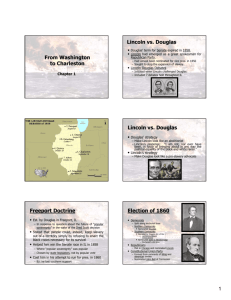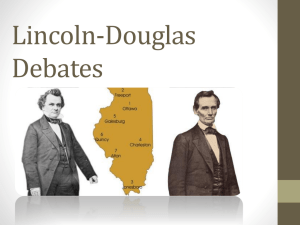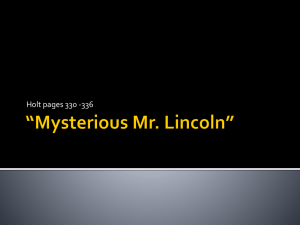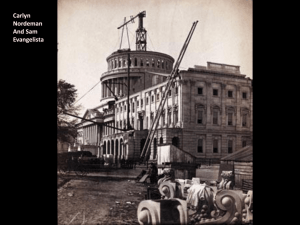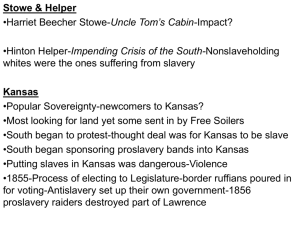From: The Great Debates to a Rail Splitter Splits the Union
advertisement
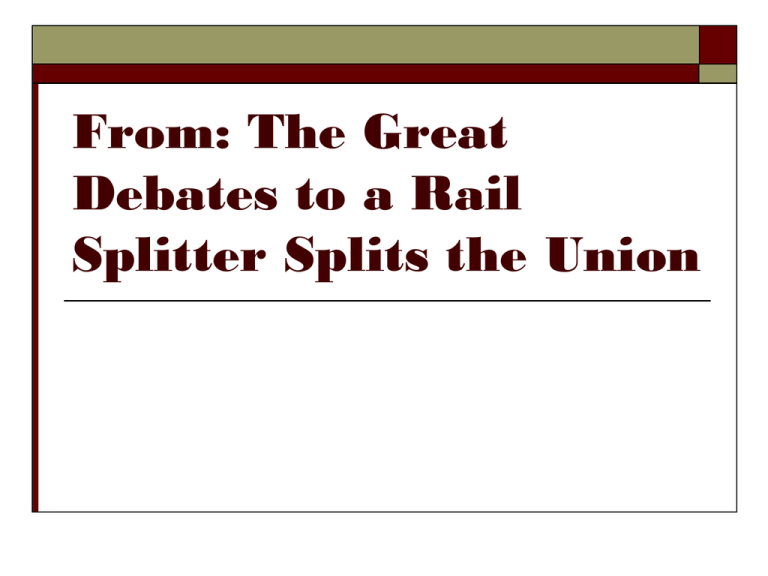
From: The Great Debates to a Rail Splitter Splits the Union The Great Debate: Lincoln vs. Douglas The Lincoln vs. Douglas debates lasted from August to October of 1858 Lincoln was a fierce debater Lincoln argued if a state should vote slavery down. Who would prevail? The Court or the People? Douglas argued for popular sovereignty or power to the people The Great Debate continued… Douglas publicly answered the Freeport Question: Which asked whether the court or the people decide the future of slavery in the territories, which became known as the Freeport Doctrine Douglas eventually defeated Lincoln for the Senate but Lincoln won the moral victory Lincoln made a name for himself while Douglas was left in shambles after his opposition to the Lecompton Constitution Helped Lincoln’s run for presidency later on The debates marked an early battle in the civil war John Brown: Murderer or Martyr? Plan: invade South, arm slaves, and establish a black free state Seized federal arsenal at Harper’s Ferry 7 innocents killed- including 1 free black ~ 10 injured Slaves didn’t know about Brown’s plan didn’t revolt Brown captured by U.S. Marines under command of Lieutenant Colonel Robert E. Lee Convicted of murder and treason hung John Brown Continued… Last words: “This is a beautiful country.” Effects: Southerners questioned how they could remain in Union Northerners openly deplored exploit Abolitionists infuriated by execution- outraged that VA hung reformer working for “so righteous a cause” Brown compared to Jesus The Disruption of Democrats Democrats met in Charleston, SC Southern “fire-eaters” thought he was a traitor Delegates from most cotton-states walked out couldn’t get 2/3 vote Due to his unpopular stand on Lecompton Constitution and Freeport Doctrine Became a trend Democrats met again in Baltimore Many cotton-state dele3gates walked out again, but Douglas was nominated platform: popular sovereignty and against obstruction of the Fugitive Slave law by the states Angry southern democrats organized rival convention in Baltimore Many northern states unrepresented John C. Breckenridge of Kentucky selected as leader Platform: favored extension of slavery into the territories and annexation of slavepopulated Cuba Continued… Constitutional Union party Feared for Union Aka “Do Nothing” or “Old Gentleman’s” party Consisted mainly of former Whigs and Know-Nothings Met in Baltimore nominated John Bell of Tennessee A Rail Splitter, Splits the Rail The Republican Party met in Chicago and nominated Abraham Lincoln as their presidential Candidate. The Republican platform had an appeal to nearly every part of the nation. For free-soilers, non extension of slavery For northern manufacturers, a protective tariff For the immigrants, no abridgment of rights For the northwest, a pacific railroad For the west, internal improvements at federal expense For farmers, free homesteads from public domain The Southerners claimed if Lincoln was elected as President, the Union would split.

